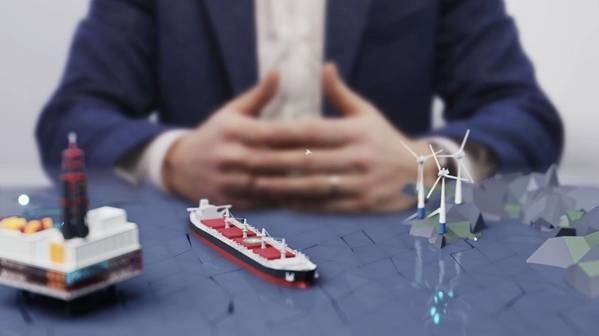
Kongsberg Digital has launched its Industrial Work Surface, which aims to "fundamentally change how carbon-intensive industries operate by enabling the company’s software users to work within a single digital environment."
"By providing end-to-end user workflows, Kongsberg Digital’s customers will benefit from cleaner, more efficient, and lower cost operations, reinforcing the company’s proven technology already deployed across the energy and maritime sectors," Kongsberg Digital said.
"Boston Consulting Group research states that as much as 70% of the value of digitalization comes from adopting new ways of working. The Industrial Work Surface will enable users across the energy and maritime industries to capitalize on this value by reducing siloed access to data and achieving better ways of working to facilitate smarter, safer, and greener operations," Kongsberg Digital said.
"Using Kongsberg Digital’s proven technology, such as digital twins, data management infrastructure, simulation, visualization, and machine learning, the Industrial Work Surface will combine Kongsberg Digital's domain and technology expertise to create a single end-to-end user surface," the company added.
According to Kongsberg Digital, its customers can use the Industrial Work Surface throughout the lifespan of projects and assets, "seamlessly leveraging data and insights across the company’s suite of technology applications to reduce costs and downtime, while providing faster access to vital information on the status of assets."
Carbon-intensive companies can access and scale everything from carbon capture, utilization, and storage (CCUS) facility modeling, predictive maintenance alerts, and energy optimization recommendations to ESG reporting, carbon emissions information, and performance analytics on critical equipment, the Norwegian tech firm said.
According to the company, the "holistic and intuitive operational view requires no retraining from existing users and places customer experience central to the technology.
"It streamlines the number of software applications or vendors required to run operations via a single secure login," Kongsberg Digital said.
Shane McArdle, CEO at Kongsberg Digital, said: “By providing industrial operators and workers with the tools needed to take critical decisions based on all data available, Kongsberg Digital's Industrial Work Surface aims to redefine how businesses design, operate and maintain their assets. We empower businesses with digital workflows to drive performance as they respond to the energy transition towards net zero, enabling them to work smarter, safer and greener.
"Our vision is to transform global industries by changing and shaping how people work. As an industrial software company, we understand the value of digitalizing carbon-intensive industries by deploying new ways of working. The Industrial Work Surface will transform how these industries operate and help businesses unlock the full potential of digitalization.”
James Maguire, Business Transformation Manager at Kongsberg Digital customer LNG Canada comments on how the Industrial Work Surface will help streamline the company's operations: “The Industrial Work Surface will provide our people with the information and data they need at their fingertips to make decisions or troubleshoot problems through a single surface where they can execute project work.
“This new way of working will enable our teams to learn from past events, predict future events, and prescribe a path forward to optimize production and equipment performance automatically, maintaining safe and energy-efficient operating parameters without manual intervention. The Industrial Work Surface is the cornerstone to our future ambitions.”
Andreas Enger, CEO of Höegh Autoliners, addresses some of the challenges the maritime sector is facing and how adopting new ways of work can help ship owners and operators to meet these demands: “The digital overlay needs to address lots of new demands and opportunities, meaning everything from following the cargo from end-to-end, to managing and routing the vessels – but the most important thing is carbon accounting. With our new vessels, we have the opportunity to integrate connectivity by design, making the implementation of technology such as using digital twins possible. We are building dual-fuel vessels and we need to ensure that we can report and allocate the carbon reductions.”



